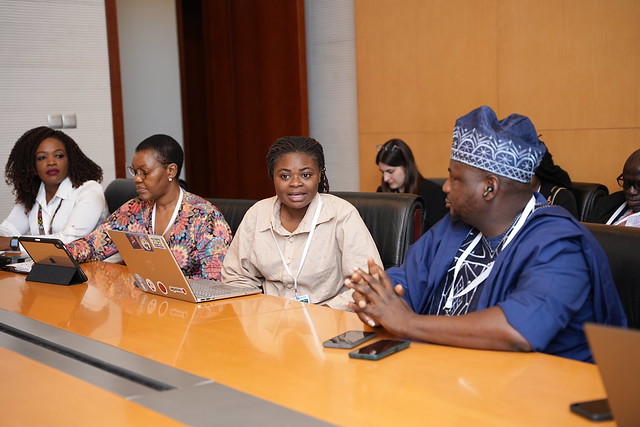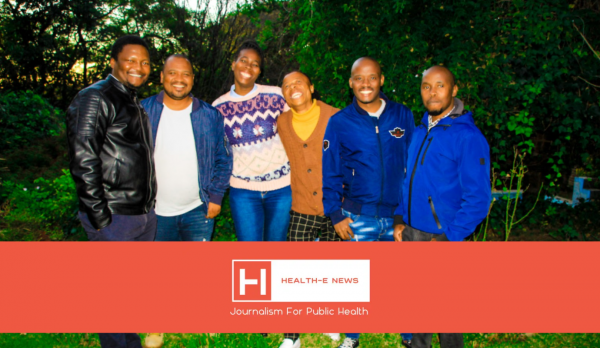To mark this year’s International Day to End Impunity for Crimes Against Journalists (IDEI), IPI held a session at the African Union on November 7 to discuss journalists’ online safety in Africa.
Held in collaboration with The Africa Editors Forum (TAEF), IPI’s Africa Advocacy and Partnership Lead Nompilo Simanje led a session focused on IPI’s protocol for newsrooms – a guide for newsrooms to develop sufficient support mechanisms for their journalists faced with online threats including harassment. The newsroom protocol, which is available in several languages including Swahili, Portuguese, and French, helps newsrooms create a culture of safety, establish clear reporting lines, document instances of online harassment, and assess potential harm.
The session highlighted the growing level of hostility toward the press across Africa, particularly during election campaigns. Both men and women journalists are impacted by online violence, with women journalists facing sexual, abusive, and aggressive attacks. Participants emphasized the importance of linking the escalation of press freedom threats and violations offline to online manifestation.
IPI collects data on and regularly publishes factsheets summarizing press freedom threats recorded in the region, the sources of the attacks, and the nature of violations.
Panelist Zubeidah Kananu, a senior editor and current President of the Kenya Editors Guild, shared how several journalists, media owners, and media outlets were targeted amidst the June 2024 protests in Kenya following their reports on the protests. Several of them were doxxed as their phone numbers and other details were posted on X, which led to intense harassment. They were targeted for reporting on the protests, for calling out the government over the abduction of senior editor Machaira Gaitho and calling out the Police for shooting four times, female journalist Catherine Wanjeri.
Also speaking from experience, Phathiswa Magopeni, Vice Board Chair of the African Women in Media (AWIM) stressed her ethos of creating a newsroom that is safe and conducive, one that focuses on the empowerment of women journalists while focusing on women as sources and not only as subdued subjects. She observed how pervasive the culture of impunity is growing, especially when dealing with officials in political parties and government. In addition to this, digital violence is becoming a transnational problem too – with politicians from other countries attacking news reporters for their critical coverage.
While it was noted that some newsrooms have adopted best practice measures like in-house training on digital security, establishment of gender desks, and development of sexual harassment policies among others, newsrooms still need to prioritize online safety. Participants emphasized the need to broaden these existing measures to include mechanisms for addressing online attacks externally and within the newsroom.
Below are some of the recommendations that were proffered during the session for journalists, editors, and media support groups to consider:
- Building solidarity beyond the newsrooms including by establishing strong relationships with digital platforms so that they investigate online attacks, although in most cases when such attacks are reported, platforms will highlight that the attacks are not in violation of their community standards
- Identifying available adjacent legal instruments or remedies for example cybercrime or data protection laws, to prosecute perpetrators of online attacks.
- Publishing stories that focus on integrating the attacks into news articles – the type of attacks, the perpetrators, and the motivation of these attacks to raise awareness and increase understanding
- Newsrooms should develop mentorship programs for young journalists who can be paired with senior editors focusing on online safety.



